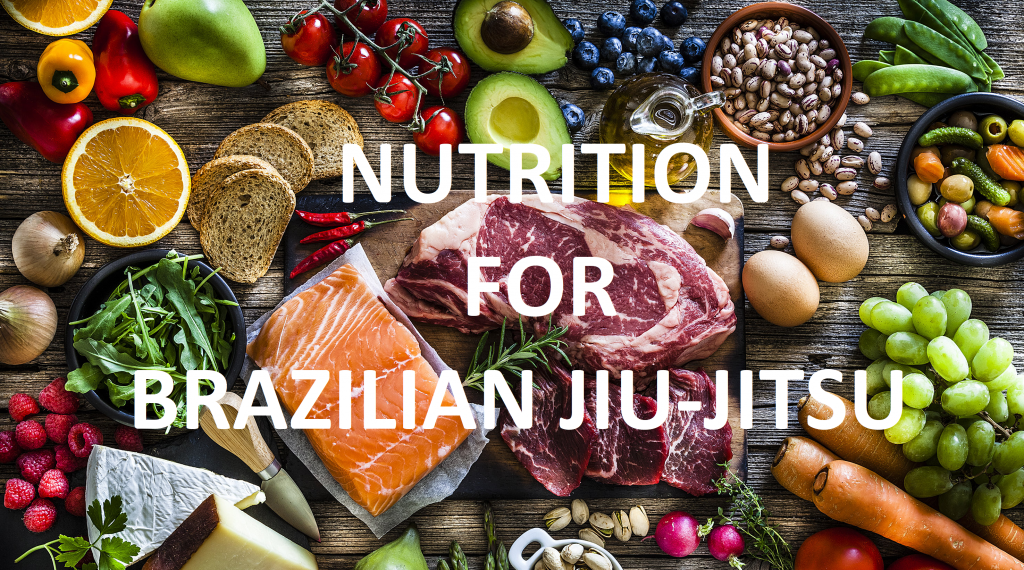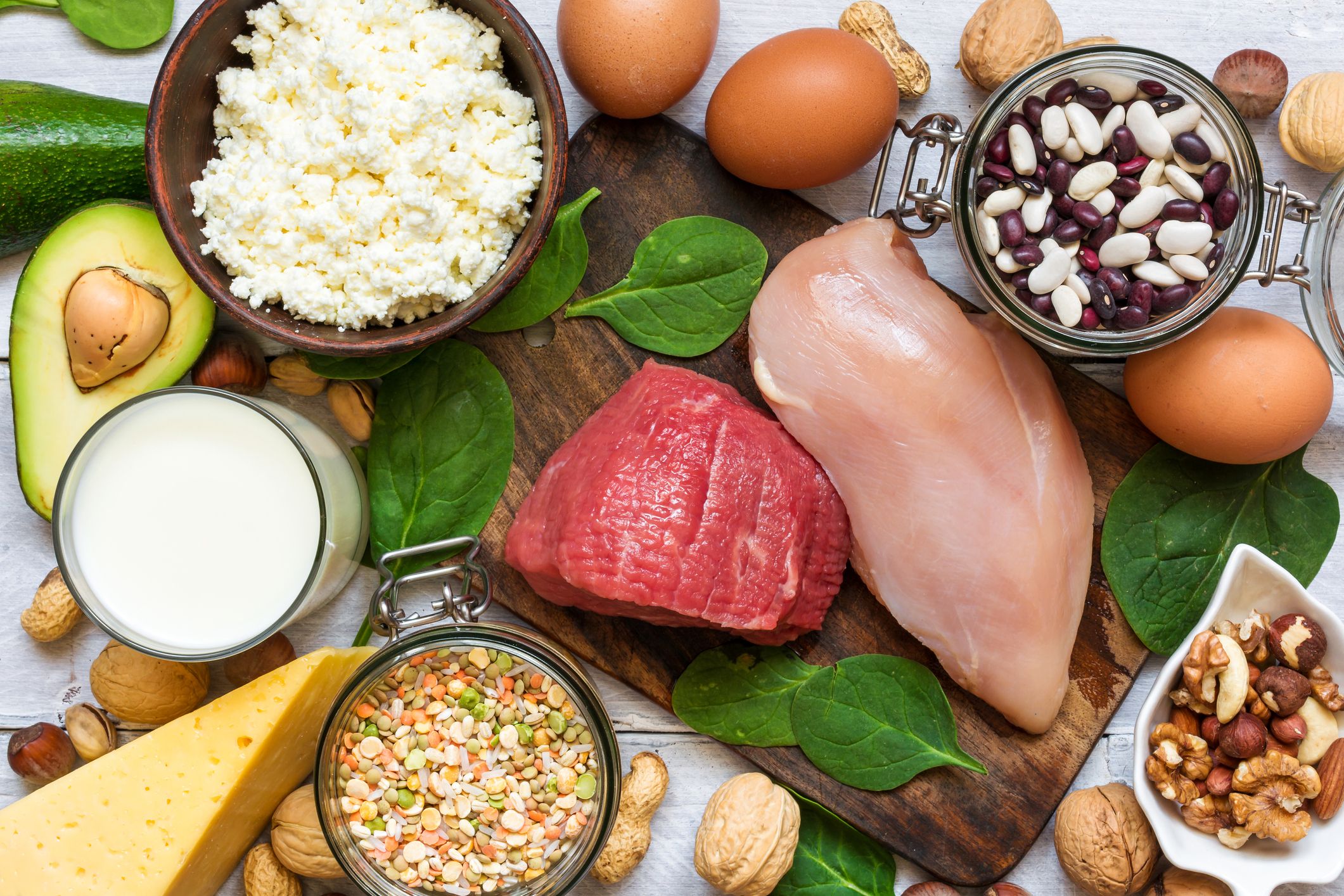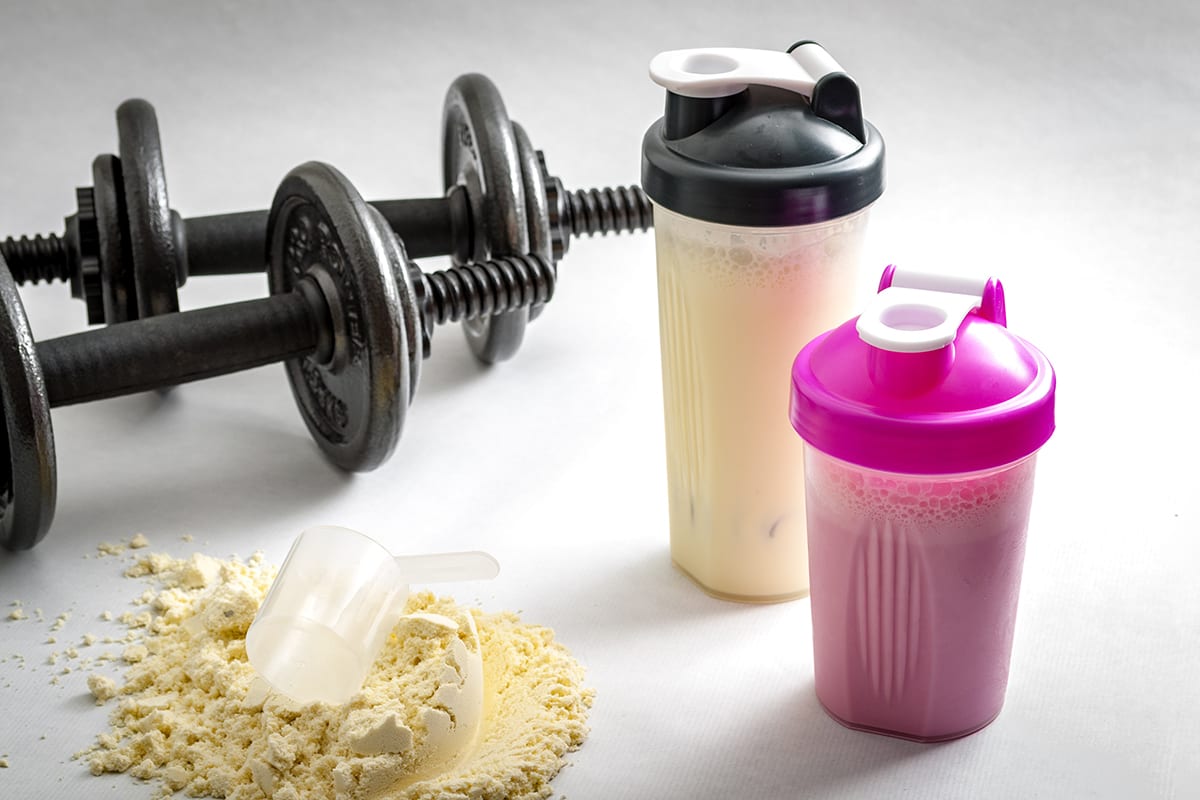
In order to get a more adapted approach of nutrition tailored to Brazilian Jiu Jitsu, Grappling Insider speaks with two qualified nutritionists who are also high-level BJJ athletes: Krzys Dk, a brown belt with a masters in nutritional public health, and Dean Kirk a licensed nutritionist and purple belt. All of the information that follows is with reference to our interviews.
Why is Nutrition Important in BJJ?
Nutrition is important to get the most out of your performance in competitions and in class. Unless you’re an elite or high-level athlete in the fitness industry, you probably don’t pay a lot of attention to your overall nutrition. Krzys Dk states,
“Overall in the fitness industry with athletes and elite athletes – they kind of know what they’re meant to be doing in terms that they know about nutrition; about the micro nutrients, carbohydrates, protein intake and so on, however, they maybe don’t go into the specifics and the individual needs they have.”
Dk continues, “At a hobbyist/ part-timer level, it is also crucial because a tiny mistake in your nutritional intake can heavily affect your competition on the day. What you eat, how much you eat, and when you eat has to be not only individually tailored to you, but also your purpose, the way you train and so on.”
Dean Kirk shares the same viewpoint, “I think it (nutrition) is a bit put on the back burner in BJJ because performance in jiu jitsu isn’t very well-gaged like in boxing or MMA, where you need to punch hard or fast and explosively: where in jiu jitsu, the performance aspects are hidden. Especially if you don’t compete. Nutrition is important in jiu jitsu because it’s good for weight management, and it will help you get more out of each jiu jitsu session – regardless of whether you are a competitor or hobbyist, you need to fuel your day correctly.”
Nutrition is so Individual
Body size is one of the differences that will affect your protein intake. When wanting to get your nutrition on track, you can’t just use somebody else’s diet plan as nutrition is so individual. Therefore when wanting to start a nutrition plan you can seek professional help to start you off and help analyse and calculate; what your body type is, body fat percentage, activity levels in terms of jiu jitsu, and activity levels outside of jiu jitsu. All of those factors will heavily determine what you should be eating more of, less of, and when you should be eating.
Dk states, “The most important thing is you get that starting point of looking at yourself; what do I need? What are my energy needs? How am I going to make my meals if I’m running around the kids, and work and training? When you talk to a nutritionist and you do their nutritionist programme, you have to do the right calculation for a start to give you a benchmark for your energy, expenditure and so on. Then you have to consider everything about you personally in terms of your food tolerances and intolerances. Your likes and dislikes – there’s no point in eating stuff you don’t like, and then if you can – look at your gut health. You can eat an amazing diet but, if your gut isn’t healthy, you’re not going to absorb it, and you’re not going to make a lot out of it.”
Kirk confirms Dk’s point that the main principle to nutrition in BJJ is understanding your energy balance i.e. how much food do you need in a day? You could have a larger fighter with a desk job that needs less calories than a smaller fighter who’s a scaffolder, Kirk states, “It’s really about understanding your energy balance i.e. your daily food intake which I think is really really misunderstood.”
The Importance of Good Gut Health
The benefits of looking aftert your gut health is something I had never even considered prior to these interviews. For example, if you’re wanting to lose fat or just want to get the most out of what you’re eating – looking at your gut health is a great place to start.
You won’t lose fat if your gut is unhealthy, so you need to start looking after your gut and bacteria, to create a healthy environment in there because if that bacteria is not fed properly, then you will not absorb the food properly, and the food that is not absorbed – apart from what’s been passed out – will also store as fat.
How to feed your gut:
- Fermented foods: kimchi, sauerkraut, yoghurt, pickles
- Fruit and veg (high fibre content): berries in particular
Overall fermented foods if you can handle them, feed your bacteria first. One your bacteria has a healthy environment there, it will absorb it and make the most out of the food that you’re eating. Plus if it feels like your food is coming back (acid reflux), you’re not digesting it properly: you might feel like you’re eating healthy but struggling to lose weight and it’s because your bacteria is hungry and low in diversity so it can’t work to breakdown your food.
If it feels like your food is coming back, you’re not digesting it properly and you’re not making the most out of your food, and although you might think that you’re eating healthy you find yourself asking, ‘why am I not getting my results?’ It’s because your bacteria is hungry and it can’t work to break down your food. So always think about first feeding your bacteria, then focus on food.
What Grapplers Should Eat Before and After Training
It’s important that before training you avoid anything that’s going to be quite slow to digest. For example, a pizza would be bad before training just because it’s going to take quite a while to digest. Make sure that you eat something quite light about 60-90 minutes before you train, where you can.
Like mentioned earlier, nutrition is totally individual and Dk states, “Depending on your training, if you train almost daily or even twice a day you definitely need two types of carbohydrates. So you’ll need food that releases quickly and gives you a lot of energy quickly, in and around your training – so before, and probably immediately after.”
Avoid eating anything new or anything under an hour before your training session, because just your luck, you will go into class and it will be knee on belly. Dk states, “As you try stuff you will learn very quickly. I know that I can’t have a fried egg before training but I can definitely have half a banana or a fresh orange. If I have two oranges it’s not going to digest quick enough. Something that can go in my stomach in a second and in half an hour it’s gone. Perfect for training.”
Examples of foods to avoid before training:
- Red meat
- High fibre foods (lots of veggies, avocado etc)
- High fatty foods (pizzas, burgers)
- Processed foods
When thinking about recovery and what you should be fuelling your body with post-training, mainly anything you would consider to be a ‘fast carbohydrate’ should be your go-to, as during jiu jitsu you lose a huge amount of energy in the body which is mainly carbohydrates and you need to replace those carbs.

Examples of foods to eat after training:
- Cereal
- White Rice
- White Potato
Kirk states, “Cereal is my go to. The best one is rice krispies, they’re so quick to digest. Very volumess. 60g of rice krispies is a huge bowl; it’s about 40g of carbs, and it will replace the energy you have lost during training really quickly. Let’s say you have an active job, you’re always in recovery. I would even say to have that before training as well.”
Reduce your PUFA’s!
If you are really serious about your performance, then you want to start reducing your intake of polyunsaturated fatty acids (PUFA). PUFAS’s are in lots of things due to the western way of life, but it’s mainly seed oils you want to avoid, seed oils: like sunflower, safflower, soybean, and vegetable oils. One of the main reasons you want to look to remove them or minimize them – especially as a high performance athlete – is because they have a profound effect on your metabolism, thyroid function and your hormone production: causing inflammation and making you feel sluggish.
If you want to replace oil for grilling and frying then a good alternative is ‘healthy fats’, which are fats that do not cause inflammation in contact with heat. Healthy fats also help with recovery and vitamin absorption therefore, if you really need to use oil, rapeseed oil has the highest smoking point which means it doesn’t break down so quickly on the heat, or coconut oil, organic butter, coconut fat, anything that is highly saturated – making it a better alternative to seed oils high in PUFA’s.
Why Is Protein So Important for BJJ Athletes?

Due to the complexity of movement we perform in BJJ, protein is so important because not only do we push, pull, hold, and lift, we move our bodies in unorthodox ways combined with aerobic and anaerobic activities. Jiu jitsu is so complex and is an activity that needs a variety of proteins because different proteins are being broken down at different rates. Some proteins can break down in your body within hours, or half an hour. Other proteins in your joints, your collagen, takes years to break down so due to the complexities of movement in jiu jitsu, and essentially really hammering our bodies we need to make sure we are supplying ourselves with a variety of protein to attain to our whole body.
It is important for us grapplers to get a variety of protein because unlike fats and carbohydrates, we don’t have anywhere to store protein in the body. Therefore if you don’t have enough protein, your body will start eating itself causing your muscles to wear down. Dk states, “If you eat enough (protein) but not enough of a variety – some functions will be met lets say your recovery and building muscle, but you might not get enough neurotransmitters to your brain and then maybe you slow down your reactions in jiu jitsu so that’s why it’s so complex.”
Dk continues, “Besides the obvious (meat), eggs are a really amazing protein source, fish as well. It’s important not just to eat lean muscle meat but try to eat more meat on the bone like a bone broth or anything with cartilages because that will help when you consume more of those amino acids that your body needs to build cartilages, then you’ll recover quicker from all of these joint pains and stuff like that so that’s why it’s so important because of the variety of complexity in jiu jitsu movement.”
When building muscle, protein is the best thing for it. The key is to not have it all in one go; add little bits throughout the day. For example, have some eggs in the morning, a few hours later have a protein shake, then a few hours after that have some chicken or salmon and so on. Around every 3-4 hours. Whatever you’re maintaining your weight at with whatever food you eat, you want to add about 20% to that of your calories.
Protein Shakes

We all see the sponsored athletes promoting protein shakes and supplements on their page, but do we need them? If so, why might we need them? Both professionals have a similar viewpoint, in terms of they’re not ‘bad’ but if you can eat the protein and seek a variety of different proteins outside of a shake – that’s better for you.
Dk says, “It’s difficult. There’s not a lot of research in terms of absorption rates. It’s just going to be some kind of milk protein and a bit of sweetener to give it the taste so they’re not really ‘bad’ in terms of a negative way but the problem is whether your body can take up, and actually make the most out of that protein. One thing very important to remember is that your body will synthesize a certain amount of protein a day and about 30% of it is being removed just by the fact that it’s damaged or it has mutations so your body is a very complex system in terms of getting through the protein and if you use a product that might have some sort of genetic damage to it, in form of the protein is just not good enough to be absorbed by your body then your body will just remove it.”
However, Dk continues, “If you feel the need to have a quick after training shake – absolutely. It can always help. Everybody who swears by their brand is more likely to be sponsored by them as well so I think the most important thing is to pick a product that doesn’t upset your stomach. Something that agrees with you and still focus on food.”
Dk expands further, “The human body is designed to absorb proper food – normal food – so using supplements for one person is fine it gets that protein in, for someone else it might not work or get flushed out, or it even might cause some unwanted reactions in terms of your abdominal behaviour and so on but what we know is that over time, excessive use of supplements will contribute to impurities because a lot of those products will have certain impurities. Little things that aren’t meant to be there, maybe something the body doesn’t like, certain types of sweetener, if it’s not plant-based sweetener it might upset you a bit, upset your stomach, and diminish that absorption. Instead of chucking £100’s on the best branded supplements I would always invest in the best quality food you can get and then if you really need supplements then turn to some supplements.”
Kirk states, “You don’t need them is my first port of call, and I go very minimalist. Whey protein powders are absolutely great if you struggle to eat your protein target because getting it between 150-250g of protein a day through food can be quite laborious. No one wants to sit eating chicken every 3 hours.”
Hydration
Most of us are dehydrated most of the time, and chucking litres of water down your neck isn’t the only way to stay hydrated. We tend to forget that most of our hydration and water is in food like fruits and vegetables, and this is more effective water than just drinking tap water or mineral water because if you drink too big of a load at one time that puts too much pressure on your bladder meaning you’re losing that water. Meet your hydration from fluids but don’t forget about foods.
Also, because us grapplers sweat A LOT in a session we need to make sure our salts and electrolytes are replenished so try adding a little bit of salt or mineral salt to your water. Kirk states, “As a general rule of thumb, if I was training more than one hour, put a little bit of salt in your drink just a quarter of a teaspoon. That’s a really basic entry level thing to hydration.” Salt helps your body retain the water, leaving you feeling lots better. Grappling Insider speaks more in depth about Hydration for BJJ with nutritionist Dean Kirk here.
Summary
To summarise all of the expanded above, what have Dean and Krzys taught us? Nobody can eat 100% healthy all of the time, who can? You need to have that balance in your life. Flexibility is important. All can be adapted as a part of a balanced diet and a healthy lifestyle, meaning you can eat things that are considered ‘unhealthy’. Everything in moderation. There are no ‘good’ or ‘bad’ foods.
- To establish your energy requirements (training and work schedule, sedentary time) to set your plan accordingly.
- Nutrition is individual: what might work for someone else, might not work for you.
- Feed your gut (fermented foods and fibre) this is where nutrition starts and it has a huge impact on food absorption, weight loss and sport performance
- Before training eat something that is quick to digest such as an orange, and after make sure you’re replenishing your lost energy with fast carbohydrates such as white potato, rice krispies, or white rice.
- Limit as much as possible consumption of PUFA’s (seed oils like sunflower, safflower, soybean, vegetable oils) as they can cause inflammation, hormonal issues, and weight issues and instead replace with healthy fats for recovery and vitamin absorption: coconut oil, rapeseed oil, olive oil, coconut fat or organic (grass-fed) butters.
- Consume a wide variety of protein sources (grass fed meats, eggs, yogurt, fish, cheeses).
- Protein shakes: you don’t need them and you don’t need to rely on them, if you can eat the protein – do.
- Hydrate properly to help benefit with recovery and performance.
Krzys Dk kdnutrition.co.uk
Dean Kirk @deankirknutrition
The post Nutrition for Brazilian Jiu-Jitsu appeared first on Grappling Insider.
